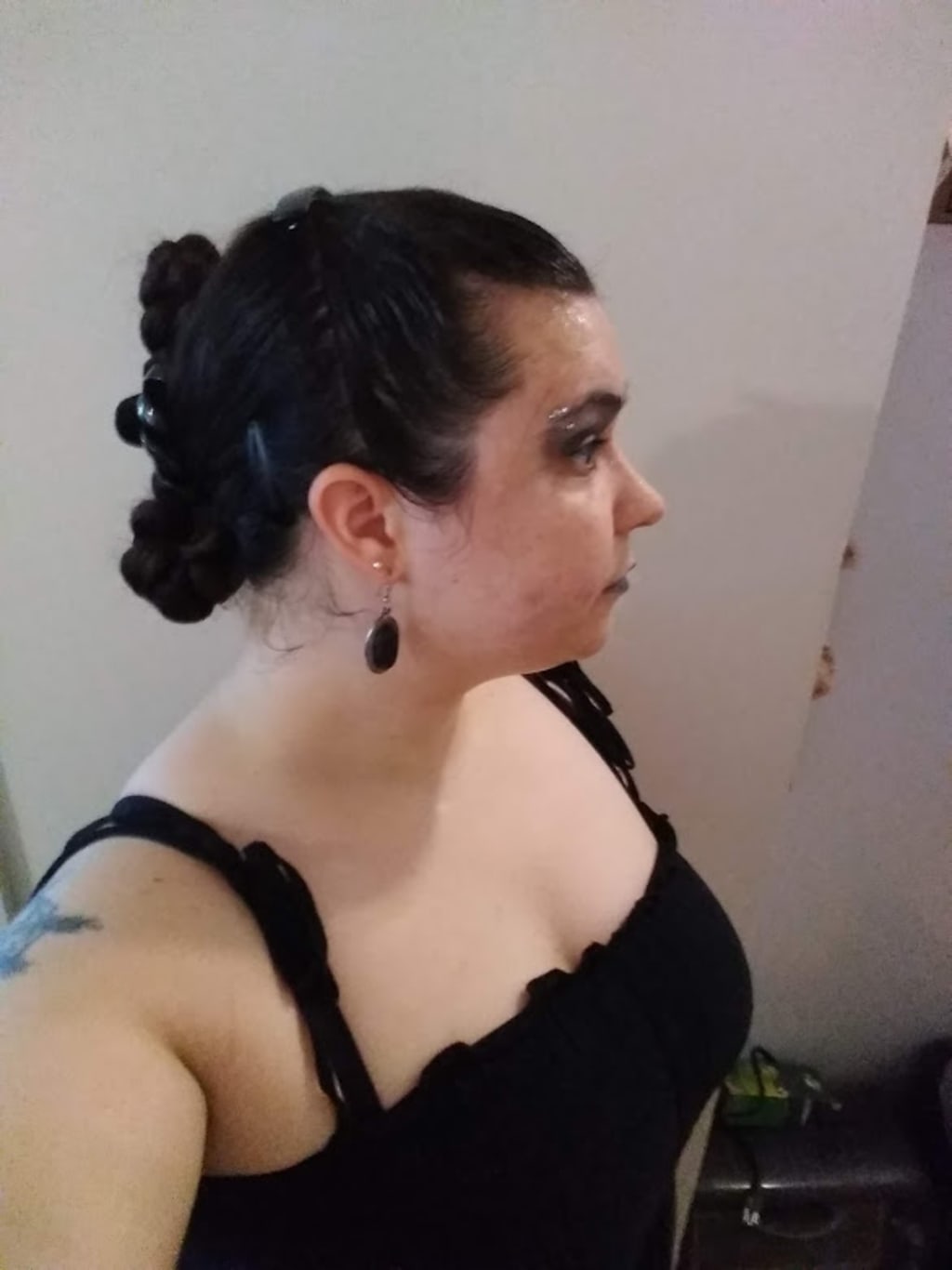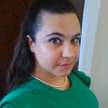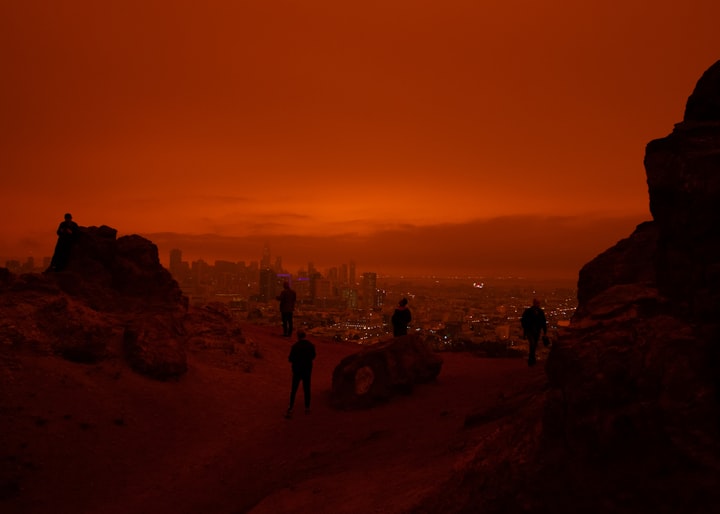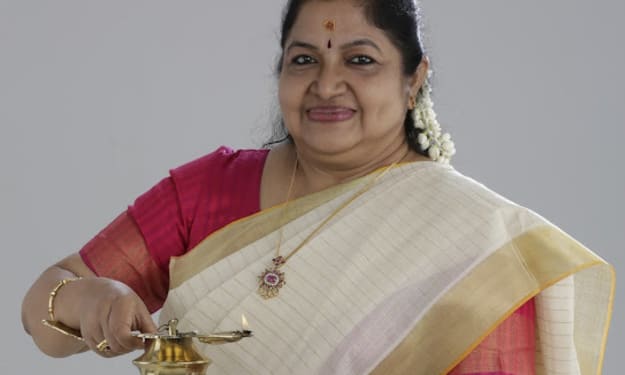
Trigger warning: abuse, suicide
Language is important; words mean things. This is why I am adamant that people do not leave abusers; they escape abusers. The barriers to escaping an abuser can be monumental. Perhaps you’re financially dependent on your abuser. Maybe your abuser has you so emotionally and mentally enervated that you can’t muster the strength to run. You could be afraid that if you get away, your abuser will find you and hurt you or worse. “Leaving” such a situation doesn’t seem adequate. “Escaping” seems closer to the truth.
I would know.
My name is Amaranthe Zinzani, and I escaped from my abusive parents in January of 2019.
I was born on April 28, 1990 in the early morning. I wasn’t breathing, and I was born with the assistance of a pair of forceps. My mother prayed that if G-d let me live, she would never ask for anything else as long as she lived. At alternating times in my life, I used to believe that this was either proof that there was no G-d, or that G-d existed and They were an asshole; no loving G-d would have allowed my mother to have children.
My mother had studied psychology and identified my Autistic traits when I was fairly young; at 18 months, I wasn’t hitting some of my developmental milestones for motor skills, but I was able to spell short words correctly. This kind of asynchronous development is common in people diagnosed with the out-of-date label Asperger’s (with which I was finally formally diagnosed at the age of 23 after I paid for my own neuropsychiatric evaluation out of pocket during a medical leave from my graduate program.) I don’t know when exactly my mother decided that she would abuse the autism out of me and train me to be a perfect academia machine, but she sure as hell decided it at some point early on.
I wasn’t allowed to watch non-educational, or “brain rot” TV, and when my dad bought the first family computer, the same was true of computer games. One of the earliest memories I have of the knowledge that I was meant to be a perfect academia machine instead of a child occurred when I was about 7. My mother was planning a family trip to historic Williamsburg to teach me (white, colonial) history. She told me to go online and look up fun things we could do as a family. I dutifully went online and looked up activities suitable for families in and around Williamsburg, and I remember finding water parks. I was overjoyed; I loved swimming, and a water park sounded like an excellent family activity to 7-year-old me. But when I showed my mother the results I had found, she exploded. She was outraged that I hadn’t inferred that I was only supposed to be looking up educational activities. She called me stupid and demanded to know what was wrong with me. While crying, I tried to resume my search, this time for educational activities, but my mother shut down the computer—by turning off the tower instead of shutting it down correctly—and stormed off. She found me an hour or so later, lying on the bathroom floor crying, and again demanded to know what was wrong with me. I remember not knowing how to articulate what was wrong and only saying “I didn’t want you to turn the computer off.”
You’d think that that kind of temper tantrum from my mother would have been a red flag for little me, but I chose to forget about it. The first time I actively suspected that my mother’s parenting was unhealthy came several years later, when I was 11. I had been confused by some instructions that my school’s drama teacher had given about auditioning for the school play, and I hadn’t ended up knowing everything I needed to audition. As a result, I was put on the stage crew. The list of which student had gotten which part had been posted outside the school, and my mother drove me to the school to see the list; she screamed at me the whole way home, demanding to know how I could have gotten the instructions wrong. As she got out of the car, she bellowed at me, “It is too hard to be your mother! I wash my hands of you!”
Around that age, I started contemplating suicide. A year later, when I was the only girl in an advanced math program and was consistently getting shrieked at for bringing home B’s on algebra tests and quizzes, I began self-harming after each “bad” grade. I kept a change of clothes and some toiletries in my backpack at all times in case I ever received a grade so bad I would rather run away than come home with it. I found solace in books, Tae Kwon Do, and choir practice, but especially choir.
I had to beg my mother to let me join the choir, as she saw music as my younger sister’s activity and didn’t want me to participate, but when I auditioned, I did so well that the directors wanted me in one of the advanced choirs and I was allowed to join. I also started listening to rock music and, inspired by Avril Lavigne, started writing my own songs and imagined performing them on stage. Part of me knew that would never happen; my parents would never support me pursuing rock music. They were already mortified that I listened to the stuff; at many times during my life, my mother insisted that I couldn’t possibly like rock music and implored me to stop “pretending to like it.” What would they say if I told them I wrote rock songs?
The abuse worsened as I got older, although it only became physical a few times. I thought that my parents would start respecting me as a human being and not a perfect academia machine once I turned 18 and went to college, but I couldn’t have been more wrong. I was still trying to be a perfect academia machine in some ways; I was convinced that I was a net negative influence on the universe and the only way I could make up for my existence would be to cure cancer. As such, I started at Smith College in the fall of 2008 as a pre-med biochemistry major, having been told by several professors that I should eventually become an MD/PhD. I wanted to major in biology and pursue a PhD, and during my second semester of organic chemistry, slogging through a class I hated (and cutting or burning myself after low test grades) because of adults who thought they knew what I wanted better than I did, I snapped.
I ended up involuntarily committed to the psychiatric unit of the hospital nearest Smith because I was a danger to myself. I was in the hospital for four days, and they only let me have my iPod on the third day, after which I played “Survive” by Rise Against on repeat. I also asked the staff for a notebook so I could write. I wrote a song called “Lunatic’s Lament,” heavily inspired by the work of Emilie Autumn, while in the psych unit. I later recorded an a cappella version of the song, but I was afraid to share it with anyone or post it online; what if my parents found it? They’d be furious, for sure.
My parents’ response to my hospitalization left much to be desired. My father accused me of “reveling” in the fact that I was depressed. My mother insisted that I wasn’t suicidal, I had been “seduced by the emo” (yes, I swear she actually said that) and thought it was :cool” to be depressed. I vowed to escape their influence, hopefully cutting them off for good, after I started graduate school and became financially independent. Maybe I’d have cut my parents off earlier if they hadn’t been helping me pay for college (since that fit into the “perfect academia machine” model of who I was).
I had never stopped writing songs, and the pieces I had written about depression and my parents’ total lack of support could have easily filled two albums by the time I was 21. I was frustrated by the fact that I couldn’t do anything with these songs besides post them to my LiveJournal, but writing them was an effective catharsis nonetheless. Still, I dreamed of performing them live one day.
When I realized that I was asexual and romantically interested in women, I hid it from my parents, but they found out about my asexuality because my college’s newspaper interviewed me after I started a club on campus for asexual people; the newspaper was posted online, and my mother regularly Googled my name. (Fun fact: the name on my birth certificate is not the name I use now. I have too much trauma associated with the sound of my mother bellowing my old name in rage to still use it.) My parents insisted that asexuality was not real and that I was trying to legitimize something I knew was fake. My mother kept asking me if she had done something while I was growing up to make me think that being attracted to men was “evil.” (She hadn’t, although she had constantly pestered me about which boys I had crushes on and then refused to believe me when I said that I had never had a crush on a boy.) You see, the child my mother had ordered when she got pregnant with me was not just neurotypical but heterosexual, and she tried to abuse the queerness out of me too. I responded by writing angry songs about heterosexism and began experimenting with writing backing tracks for them using GarageBand.
Finally, I was accepted into a funded PhD program. Financially independent now, I sent an email to my father detailing the abuse that my mother had put me through throughout the course of my life, figuring he must not know about most of it because it had happened while he was at work. Both my parents accused me of finding normal parenting to be abusive, my father blaming my “undiagnosed Asperger’s” for such. I sought therapy and additional medication (I had been in therapy and on an SSRI since my unwanted stint in the psych ward, but my old therapist worked exclusively near my alma mater and didn’t do telehealth) and was diagnosed with PTSD from my mother’s abuse.
I finished composing backing tracks for a few of my original songs and performed them at open mic nights, my one respite from the stress of graduate school and the hell my parents were putting me through. At one such open mic night, I performed a punk song I had written about heterosexism called “This Is a Revolution, Not a Fucking PR Campaign.” A few people got up and danced, and applauded me and gave me high fives when I was finished. I began to think that maybe I could pursue music one day...if I were finally free of my parents, that is. I never told them about my original music.
I was too emotionally damaged to continue studying. At my advisor’s behest, I took a year-long medical leave, during which I started EMDR therapy and was finally diagnosed with Asperger’s. Despite having to spend the year I took off with my parents, I was barely functional enough when I returned to school to finish a master’s in 2016. Yes, it was supposed to be a PhD; I had initially hid my Autisticness from the school, afraid of the repercussions should I seek out accommodations for my disability, but one of the professors in the lab where I was working triggered a horrible PTSD flashback in me that was so overwhelming I had an Autistic meltdown as well. Word of this got back to the dean, who decided I was a liability and that I should either take my master’s and go or simply leave with no degree. I chose the master’s and wrote a song called “Wings of Fire” in which I lambasted the dean and all the professors who let me get fucked over.
Two years after finishing my degree, I was still living with my parents and more suicidal than ever. I participated in National Novel Writing Month 2018, calling my project The Last Novel I’ll Ever Write. While my previous NaNoWriMo projects had actually been novels, this effort was a hodgepodge of short stories, journal entries, songs (of course), and cover letters for job applications. That same November, I finally found a job in scientific publications—I had abandoned the life of the laboratory in 2017 after I realized I didn’t have the emotional tenacity for such a high-pressure environment—and it paid well. Well enough that I could afford to live on my own...and I saw a way out that didn’t involve ending my own life.
My parents wouldn’t hear of me moving out, so while most of my coworkers were on break for Christmas, I went in to work and spent my time planning my escape. With the support of my amazing girlfriend (now my wife), I found an apartment, booked movers, packed what I could, and bought a new phone so my parents wouldn’t be able to trace my old one. On January 15, 2018, I stayed home from work, claiming illness, and a few hours after my father left for work (my mother was out of town), the movers showed up. I left a letter for my parents on the kitchen counter, along with my old phone, which had had its contents erased. My first night at my new apartment, I couldn’t sleep, afraid my parents would find me. I wrote and sang a version of “The House of the Rising Sun” about my parents’ abuse, recorded myself singing it, and was finally able to nod off.
So if that’s my story, what’s my passion?
Music.
At this point in my life, I have written enough songs to fill about four albums. However, at this point, my main creative focus is a concept album about how I successfully got away from my abusive family. It will be called, simply, Escape. I have 14 tracks, including an interlude, planned. I don’t play any instruments suitable for making rock music, so I’ve been using free software to compose the backing tracks. How could I monetize my musical ambitions in a perfect world? I already maintain a blog about my Autistic special interest in music; I would let my supporters see blog entries a few days early and let them help me decide what to write about. With enough support, I could buy professional composition software for my backing tracks, recording equipment for my vocals, and a new computer with which to compose and record. Every month, I could reveal a new song or snippet of music until the album was finished. Once the album was finished, I would let my supporters have a digital copy of the album for free. After the release of Escape, I would continue writing songs; I highly doubt my creative well will run dry after Escape, and I still have plenty of songs I wrote when I was younger that I would like to record. (I’m especially fond of “Wings of Fire.”) Maybe finishing and releasing Escape could even jump-start a music career for me, and I’d finally get to sing my original work on stage in front of fans after dreaming of such a thing for twenty years.
I sincerely hope you will consider me for the winner of this Challenge.
About the Creator
Amaranthe Zinzani
Very queer and multiply Disabled. Professional editor. Activist, musician, writer. She/her.






Comments
There are no comments for this story
Be the first to respond and start the conversation.